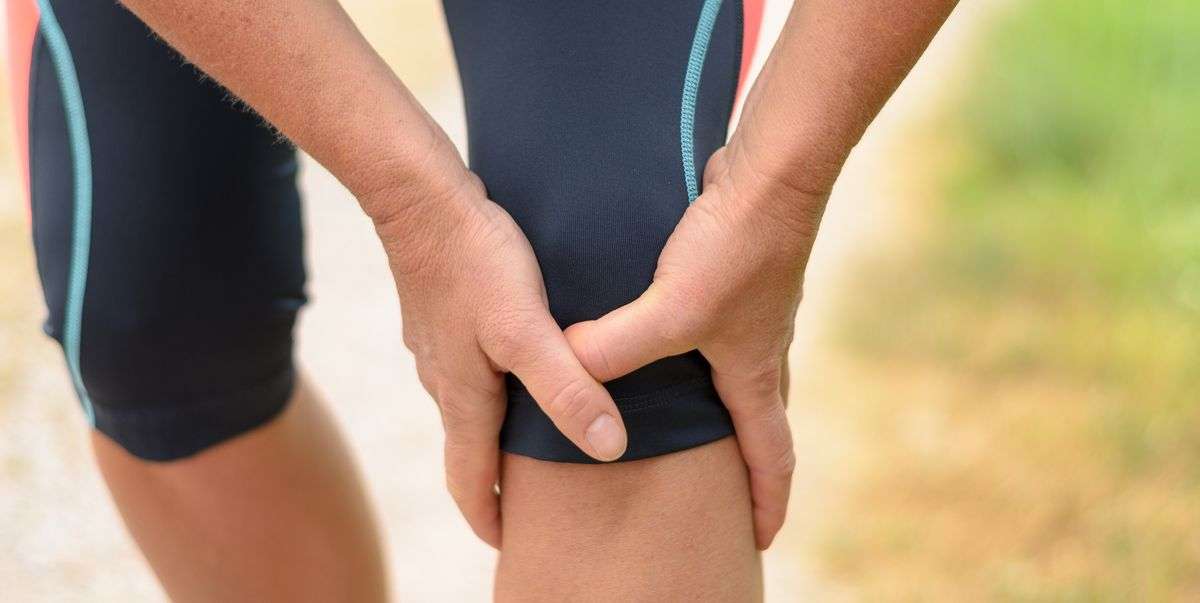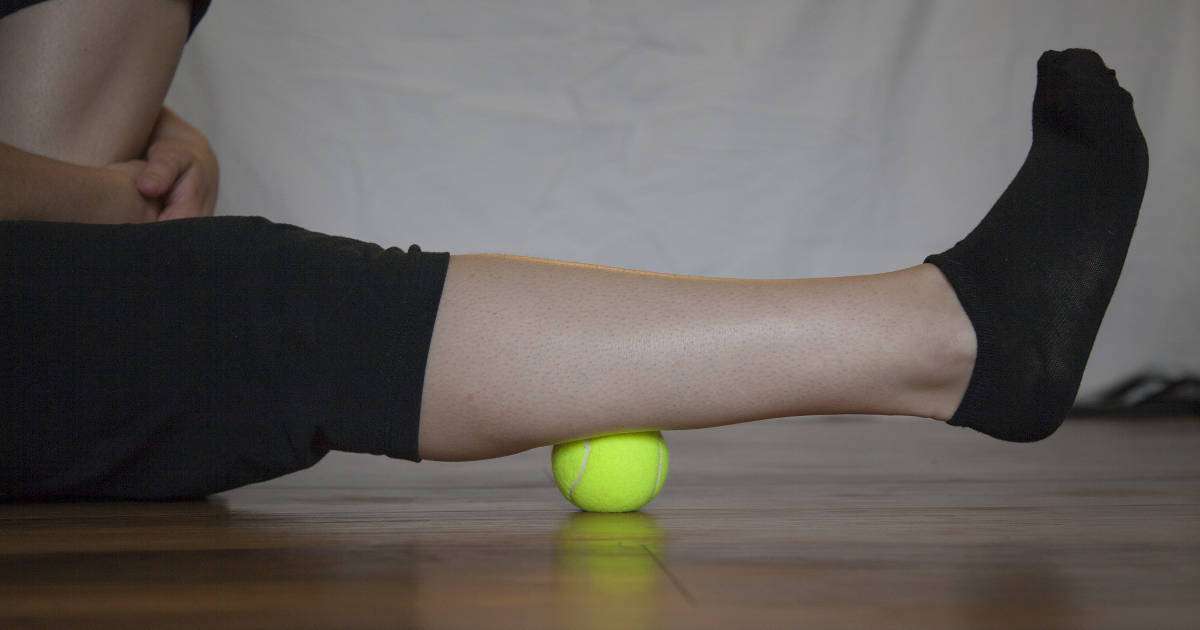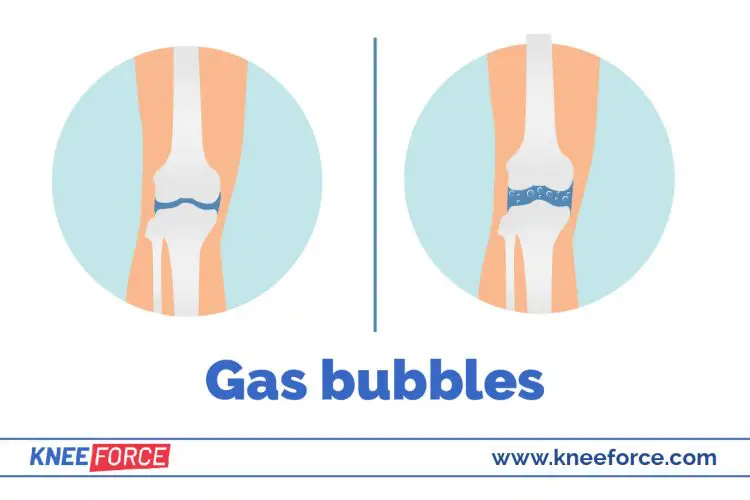Crepitus And The Crackling Sounds In Your Joints
Crepitus is the abnormal popping or crackling sound in either a joint or the lungs, which may be faint or loud enough for people to hear. It is often accompanied by a popping or crunching sensation that may sometimes be uncomfortable or painful.
Crepitus in the joints is typically related to joint damage. Crepitus in the lungs is caused when collapsed or fluid-filled air sacs abruptly open upon inspiration.
Crepitus is not so much a condition but rather a descriptive characteristic that healthcare providers use to pinpoint the source of the problem. The term “crepitus” is derived from the Latin for “rattling” or “creaking.”
When To Be Concerned About Joints Popping
Most of the time, this popping and creaking of joints is harmless. However, crepitus is also a symptom of the joint degeneration that leads to osteoarthritis.
You should worry about joint popping if:
- It’s occurring frequently in one location
- It’s accompanied by pain
- It’s accompanied by joint swelling, tenderness, or stiffness
- You’re also having pain as a result of prolonged joint movement, such as when walking
If you’re experiencing pain when a joint pops or you have any other of the symptoms listed above, talk with your doctor. If your symptoms and test results indicate it, your doctor may diagnose osteoarthritis and start treatment. Treatments for osteoarthritis can ease pain, improve mobility, and slow disease progressionespecially if it’s caught early.
Why Do My Knees Crack
UABs Harsvardhan Singh, Ph.D., says typically, there is no concern if there is no pain associated with knee cracks.You might have heard this sound before: the loud pop or crack of someone elses or your own knees. Sometimes it can be an unpleasant experience, but one researcher at the University of Alabama at Birmingham says typically, there is no need for concern.
What does it mean that my knees crack?
Knee cracking could mean lots of things, said Harshvardhan Singh, Ph.D., assistant professor with UABs Department of Physical Therapy. If it is painful, then you should see a health care provider.
Singh adds that a painless knee crack could come from multiple sources:
- A large-sized kneecap that does not fit well into the groove, thus producing a cracking sound during activities such as running and jogging.
- If the thigh muscle is too tight, it can pull the kneecap and affect its free gliding movement, generating a knee crack.
- If the various soft tissues such as cartilage or meniscus have degenerated, resulting in loss of smooth cover of the knee joint, and leading to knee cracks during various activities.
The degenerative changes can also lead to pain and/or locking of the knee joint, he said. Typically, degenerative changes are common in older people, so a degenerative change-associated knee crack may be found commonly in older people.
Should I be worried if my knees crack often or loudly?
Harshvardhan Singh, Ph.D.Does this mean I have arthritis?
Read Also: Does Aflac Pay For Sprains
Who Is Most Often Affected By Knee Instability Symptoms
The following individuals are more likely to experience knee instability.
- Young athletes: Fit, active athletes in their teens and twenties are the ones who most often suffer sports injuries.
- Dancers
- Anyone doing hard physical labor
- Anyone who is overweight or obese
- Women: Women may be more prone to knee problems, due to naturally having a wider pelvis. Therefore, women have a predisposition to misalignment between the top of the kneecap and the bottom of the thighbone.
- Older people: May experience gradual wearing away of the cartilage of the knee
- If you have a prior injury: This can predispose you to another one.
What Is Torn Meniscus Surgery

The clinical significance of a meniscus tear was discussed in a previous blog. Torn meniscus surgery takes one of two forms. The first is repair by suturing the two edges of the torn meniscus together. The second option is a partial meniscectomy where a portion of the torn meniscus is cut out. The majority of meniscus surgeries are partial meniscectomies. This is important as discussed below.
Don’t Miss: Inversion Table For Knee Pain
A Look At The Knee Joint
The knee works like a large hinge. It consists of bones, cartilage, the synovium, and ligaments.
Bones: The knee joins the thighbone to the long bone of the lower leg . The fibula, a bone in the lower leg, is also connected to the joint. The kneecap is the small, convex bone that sits at the front of the knee, shielding the joint.
Cartilage: Two thick pads of cartilage called the menisci cushion the tibia and femur, and reduce friction where they meet.
Synovium: A specialized connective tissue that lines joints and tendon sheaths. Synovial fluid serves to lubricate the joints.
Ligaments: Four ligaments tough, flexible bands that stretch across the uneven surface of the joints connect the bones.
Crepitus happens for various reasons, apart from osteoarthritis. Here are some of them:
What Causes Knees To Crack And Pop
If you find that your knee cracks and pops regularly, there could be an underlying issue, says Bert Mandelbaum, M.D., an orthopedic surgeon and sports medicine specialist at Cedars-Sinai Kerlan-Jobe Institute in Los Angeles and author of The Win Within: Capturing Your Victorious Spirit. Typically, it boils down to one of these causes:
Tight or misaligned muscles
Tight or misaligned muscles will pull the kneecap out of balance, explains David Reavy, P.T., O.C.S., director of React Physical Therapy in Chicago. Over time that imbalance can cause clicking or popping, which could be a potential problem, says Butts, because the cartilage can become worn down and potentially lead to early onset arthritis, as well as many issues involved with deterioration of the joint.
One muscle could also be a little stronger than the other and the integrity and harmonization between the muscles, tendons, and bones is critical, Dr. Mandelbaum says. If your muscles arent in the right spots, or if one is working a little harder than another, that can lead to cracking and popping.
Arthritis
Arthritis, which is an umbrella term for inflammation of the joints, can also lead to cracking, clicking, and popping, says Dr. Mandelbaum. This condition breaks down the padding within the joint due to erosion of the bone and cartilage, which interferes with the knees ability to glide and function smoothly. And that can lead to noise.
A previous knee injury
Loose cartilage
Don’t Miss: My Knees Crack When I Squat
How To Soothe Your Knee
As mentioned above, you can usually stop your knee from feeling like it needs to pop and reduce the chance of it feeling that way again by using home remedies, although a doctors visit and/or physical therapy may also be needed. When you have a knee that feels like it needs to pop, the best way to make it feel better isnt by popping it , but by reducing strain and pressure on the knee. Below are four of the best ways to get relief.
Dr Bennett Is A Knee Specialist With Many Years Of Experience Treating Knee Pain
Because the causes of knee pain are varied, you should have an experienced knee specialist evaluate your knee injury. Dr. Bennett has many years of experience successfully treating a variety of knee injuries and knee arthritis so call for an appointment to start on the road to recovery from knee pain and knee stiffness. You dont want to ignore knee pain or knee popping or locking. If you do, it can make it more likely that treating your knee injury will require a total knee replacement at some point.
Don’t Miss: Inversion Table Knees
Your Knee Keeps Buckling
When you got hurt, did it feel like your knee gave way underneath you? Were not talking about a temporary sensation of weakness or some wobbliness, but more like your shin and thigh bone werent connecting or staying in place. A buckling knee could signal an ACL tear or a cruciate ligament injury.
It could start with a small pop or crack, or you could feel it after a strenuous exercise session or a soccer game.
Either way, your knee feels unstable or weak. Your knee may give out momentarily, which is scary because you might not trust yourself to walk safely when this happens. According to Dr. Howard Luks, an orthopedic surgeon, this could indicate a tear in the patella or the quadriceps tendon.
These tendons are on the front of your knees and offer a lot of support to keep you upright. If theyre not in top form, youre bound to feel weak in the knees , and you might not be able to walk at all. If this is the case, you could need surgery.
On the other hand, the weakness could be temporary, caused by wear and tear, improper footwear, or a strain. If youre a weekend warrior or youre over the age of 30 , you might experience this symptom on a regular basis.
However, if the weakness is recurring and happens every time you exercise, its possible you have a time bomb thats waiting to happen. When in doubt, seek advice from a physician.
If your knee buckles under you when you are walking, then it usually indicates instability, she says.
Do you need one? Find out here.
What Makes Our Knees Snap And Pop
Our knee joint is composed of three bones the end of the femur or thigh bone the top of the tibia or shinbone, and the patella, or kneecap. The knee is supported or held together by a number of ligaments. The knee moves because of a number of large strong muscles and tendons that cross our knee joint. Deep inside our knee, we have two meniscus discs that provide shock absorption.
All of the structures I mentioned can be damaged by activity, trauma, injury, or simple degeneration over time. Many injuries to the knee structures mentioned above can cause snapping and popping of your knee.
Recommended Reading: How Much Does Aflac Pay For Ambulance Ride
What The Clicking Is Not
Many of our patients worry that the clicking represents the bones rubbing together and causing damage to the joints. This is simply not the case. It is normal for knees to click, they are moving parts with many structures that move and glide next to each other when you bend and straighten the knee, for example when going up or down the stairs.
Knee Pain And Popping

Reviewed by: KPE Medical Review Board
Knee pain and popping is a common problem. It’s that tell-tale snap, crackle, pop making your knees sound like a bowl of rice krispies.
Many people find they hear strange noises such as knee clicking when they do things such a squatting down or getting up from kneeling.
In many cases, it is more of a nuisance than a real problem, but in some cases, it may be a sign of an underlying problem in the knee.
Knee popping in itself is very common and can be caused by a number of things. It may be as simple as little bubbles of gas popping in the knee or indicate a problem in the soft tissues such as a ligament tear.
Another term commonly used for popping in the knee is “crepitus”, which essentially means a noisy joint, whether it be popping, clicking, cracking or snapping.
Here we look at the most common causes of knee pain and popping and how to treat them.
Don’t Miss: Does Aflac Cover Hysterectomy
My Knee Popped Should I Be Worried
The vast majority of people with grinding or popping in their knees do not have pain and most do not need to worry. But some have had new or older injuries and now your knee pops. There are three basic groups we see who complain of their knee making a popping sound.
Now, there are those of you who might have painful snapping or popping in your knee. Lets explore some of the more common reasons for painful knee clicking, popping, and snapping.
Can Knee Pain In Teens Be Prevented
Most knee pain that is caused by injury or overuse can be prevented with some attention and work by your teen, including:
- Make sure your teen wears proper shoes for the activity/sport and wears knee pads and leg guards . Replace worn out footwear and gear.
- Engage in muscle strength training exercises. Check with a trainer to make sure proper form and body alignment are being followed. Always do warm up and cool down exercises before and after workouts.
- Keep your muscles flexible by proper stretching exercises or yoga.
- Dont engage in activities that cause or worsen knee pain.
Read Also: How Much Does Aflac Pay For Knee Surgery
Why Would A Teenager Have Knee Pain
Knee pain isnt a condition that only happens to older people. Despite being young, your teenager can develop knee pain too.
Knee pain in teens is a common result of overuse, but also results from specific knee injuries and medical conditions that affect the knee. Knee pain can also be temporary and not related to an injury, but rather a change in your teens level of activity or sport.
Because of the many different reasons for knee pain, if your teen complains of pain, its wise to get it checked. Never think that knee pain in your teen is simply growing pains. This is not a typical cause of knee pain in a teenager.
Common Causes Of Knee Pain
Your knee is a complex structure. It includes three bones:
- The lower part of the thighbone
- The upper part of the shinbone
- The kneecap
Strong ligaments and tendons hold these bones together. Cartilage under the kneecap cushions and stabilizes the bones.
Any damage or disease in these structures can cause knee pain.
Common causes of knee pain include:
- Arthritis
Also Check: Knees Crack When Doing Squats
Can Knee Cracking Lead To An Injury
As discussed above, Knee Cracking is nothing but the synovial fluid producing the sound.1 There is no involvement of the bones or ligaments and hence there is no chance of an injury to the ankles. The only exception to this being people who have a known diagnosis of arthritis of the knee joint or an unstable knee which has a tendency to frequently dislocate. An individual with these conditions comes off a long plane ride or hikes for a significant distance can experience Knee Cracking along with pain. Apart from this, there is no data to suggest that Knee Cracking can result in any form of injury to the knee joint.
Thus, it is recommended for people who have a history of arthritis of the knees or have a weak joint which is prone to frequent dislocations to avoid sitting for prolonged periods of time, squat, walk or hike for long distances without resting for some time so as not to injure the knee.
Complementary And Alternative Therapies
A number of mind-body therapies may be used to treat knee pain. These include:
- Acupuncture
- Tai chi
These are especially common for knee osteoarthritis.
The once-popular supplements glucosamine and chondroitin have fallen out of favor for knee osteoarthritis. That’s due to a lack of scientific proof. Always talk to your healthcare provider before taking any supplements or medications.
Also Check: Best Knee Walker 2016
Vastus Medialis Oblique Activation
Your VMO, a.k.a. the tear-drop shaped quad muscle that runs along the inside of the kneecap, is often one of the weaker muscles on the thigh, says Reavy. Again, that can pull your kneecap off track. The solution? You guessed it: strengthen it.
Instructions:
How To Keep Knees Healthy

If youre between 18-64 years old, do a variety of exercises regularly to strengthen your legs and knee joints.
- 150-300 minutes of moderate-intensity aerobic activity, AND
- Strength training twice a week.
- Do it under the guidance of a personal trainer to prevent injuries.
Also, try to keep your BMI below 25. The higher the BMI, the lower your knee health.
Combine this with a healthy lifestyle for best results eat nutritious foods, sleep well, and take care of your mental health.
If you have knee osteoarthritis, please follow the indications of your healthcare provider to prevent it from getting worse.
Recommended Reading: Dcf Compression Knee Sleeve
What Causes True Knee Locking
True knee locking is caused by something getting stuck inside the joint that physically prevents the knee from moving.
The knee joint is designed to bend up and down, flexion and extension, and rotate slightly. If something gets caught inside the knee joint, it blocks the movement and the leg gets stuck – think of it like a door stop. When this happens, the knee is totally blocked, unable to move at all.
It often takes a few minutes of gently moving the knee, or as patients often say waggling it about, to unlock a locked knee but sometimes professional intervention is needed to get the fragment to move out of the way, before you can move the leg again.
True knee locking is usually caused by: